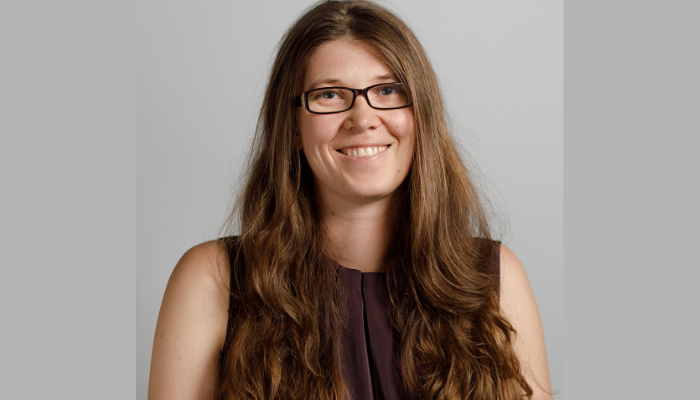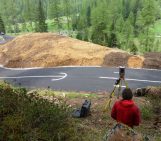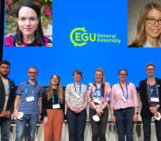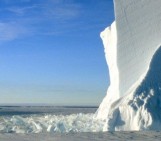
Hello Stef. Thank you for agreeing to this interview! Before we delve deeper, could you tell our readers about yourself and your background in palaeoclimatology?
Thank you for having me! I’m a Junior Professor of Palaeoclimatology at Freie Universität Berlin, a position I’ve been fortunate to hold since 2023.
My academic journey began with a PhD in Paleoclimatology from Utrecht University in the Netherlands in 2016, followed by postdoctoral research in Canada, Taiwan, and Germany.
These international experiences shaped my “big-picture” approach to palaeoclimate science—I’m captivated by the long-term stories of continents and oceans, how they’ve influenced climate over millions of years, and how those changes intersect with the evolution of human behaviour.
I’m also a proud academic mom of two, navigating research and parenting with equal parts curiosity and caffeine.
Congratulations on becoming the new Union-level early career scientist (ECS) representative! Could you tell our readers what ECS representatives, like you, do for the European Geosciences Union community?
Thank you! As a Union-level ECS representative, my role is all about championing the needs and interests of early-career scientists across the European Geosciences Union.
We work to ensure that ECS voices are not only heard but genuinely influence the direction of the EGU—whether that’s through dedicated sessions at the General Assembly or year-round efforts like task forces, workshops, mentoring schemes, and community-building events.
Ultimately, it’s about creating a vibrant, inclusive space where early-career researchers can connect, thrive, and shape the future of geoscience together.
What motivated you to become Union-level ECS rep?
I want to help the EGU evolve into a more inclusive, family-friendly, and forward-thinking organization—one that doesn’t just showcase diversity, but supports it through accessible structures and meaningful engagement.
My aim is to build stronger bridges across divisions and make it easier for early-career scientists to influence how things work in academia.
I’m particularly focused on three areas:
- improving how we engage with ECS members,
- increasing transparency in EGU,
- and ensuring that ECS perspectives are represented at the highest levels.
You’re also co-founder of the Mapping Ancient Africa (MAA) network, a pan-African collaboration building a picture of the continent’s historic climate change. How does the network help its ECS community?
MAA is something I’m incredibly passionate about. Since 2021, I’ve helped grow this network—initially as co-lead and now as project lead.
MAA brings together palaeoclimatologists, climate modellers, archaeologists, and palaeobotanists to better understand how Africa’s environments have changed over the past four million years—and what that means for human evolution.
But it’s more than a research network. MAA supports early-career scientists across Africa, particularly those who face challenges such as limited access to training and underfunding. Many are also rightly cautious of programs that replicate neo-colonial dynamics, where data is extracted but capacity-building is minimal.
MAA is working to flip that script. We’re creating opportunities that empower African researchers—through regional hubs, training, mentoring, and co-authorship—to take the lead in studying their own continent’s past. It’s about giving underrepresented ECS the confidence and tools to take the next step in their careers, on their terms.
How can ECS get involved with our community?
Just reach out! Whether it’s through your division’s ECS rep, social media, the EGU blog, or a good old-fashioned email, there are so many ways to plug in.
You can join our ECS division teams, task groups, contribute to outreach efforts, co-organize sessions and short-courses at the General Assembly, or even run for a representative role yourself.
It’s a vibrant, supportive community—and we’re always excited to welcome new voices!




tobin
I really appreciate the way you have conveyed the message in a very right way to make sure someone like me gets the knowledge about it. I am curious now enough to know more details and am sure I’ll be a regular visitor to your blog! Thanks again!